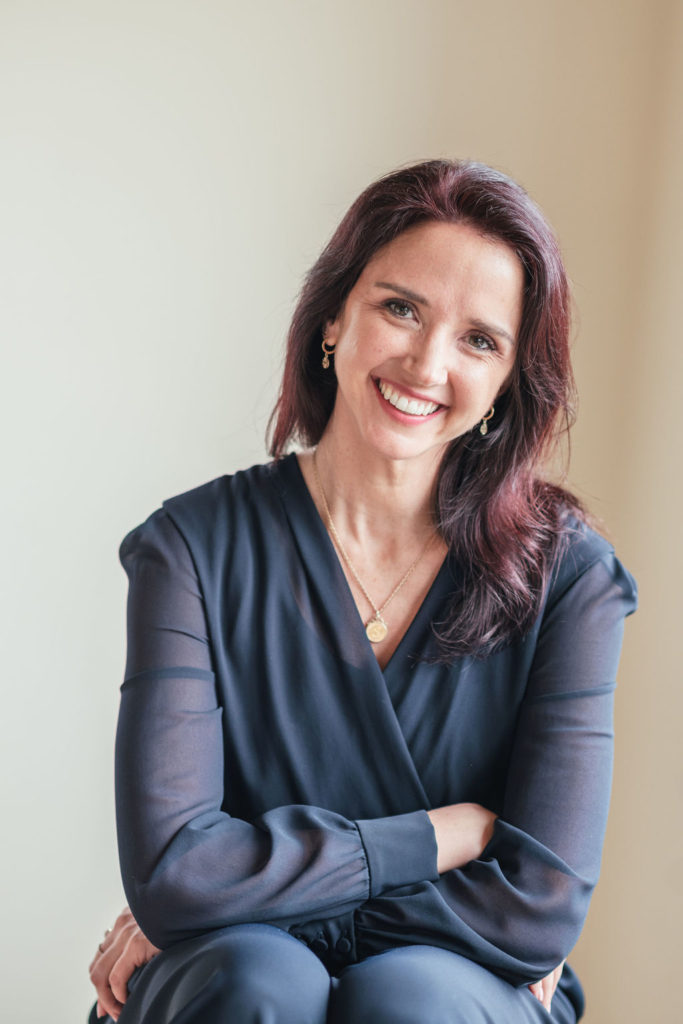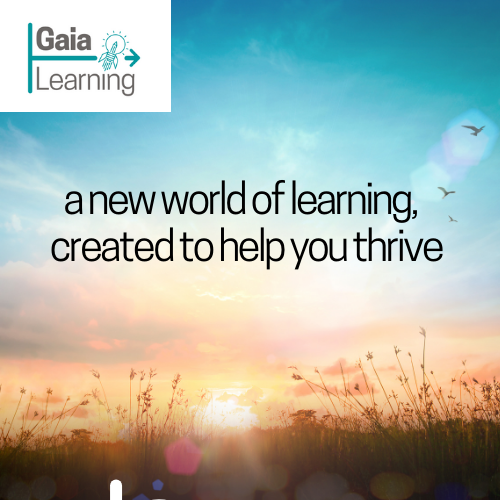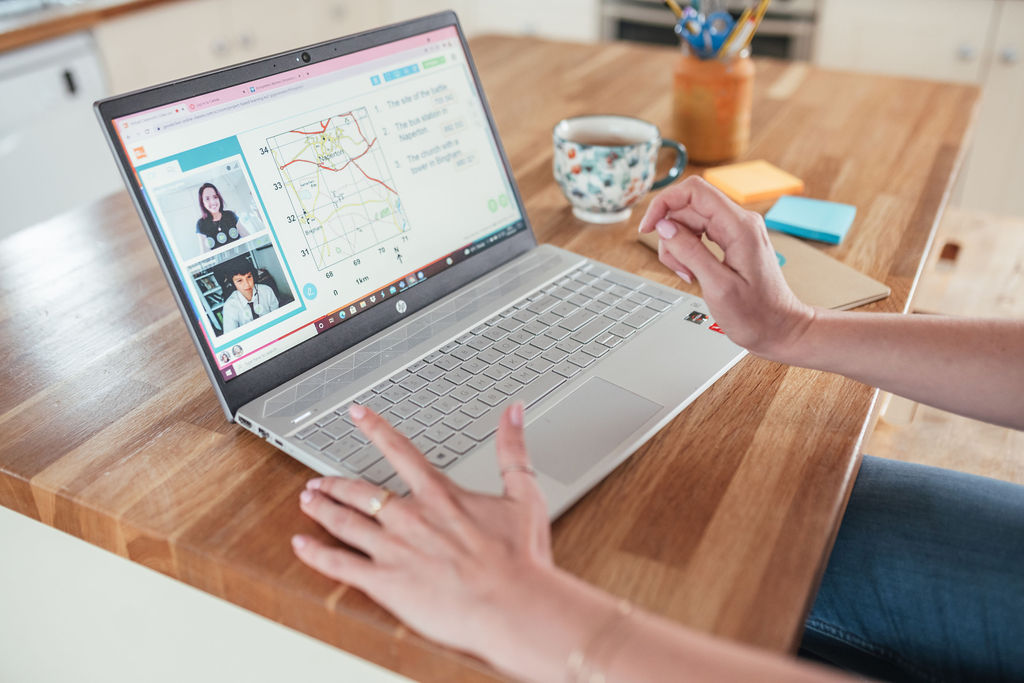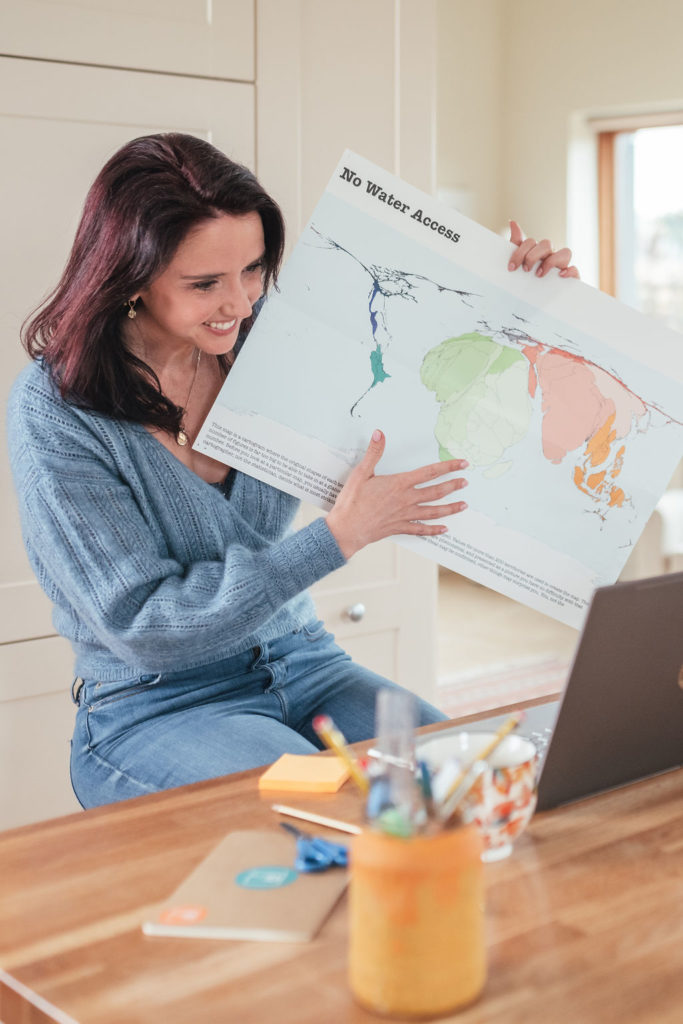Education Provider Voice 8
Kirstin Coughtrie – Founder of Online School, Gaia Learning

Kirstin Coughtrie is a teacher turned tutor and homeschooling mum to three children. Through her innovative, self-directed, democratic, online school, Gaia Learning, she aims to empower learners to take their studies anywhere (literally and figuratively).
She wanted to create a platform to bring together the most highly skilled, empathic educators and disruptive educational technology to offer online tuition in a brand new way to inspire home educating families and parents wishing to supplement their children’s school education. She wants to offer her colleagues the opportunity to have flexible, impactful careers.
Can you tell us about the Gaia Learning approach?
Gaia Learning is all about finding the balance and harmony between learners, parents, educators and technology to make education flexible, fun and relevant in the 21st century. The world needs joined up solutions that are sustainable for our future.

We believe in supporting the whole learner, encouraging self-directed study and making the best use of edtech to allow us to escape the confines of the classroom. We give learners choice over their education (choice of teachers, where and when they study) while still helping them succeed with traditional qualifications such as GCSEs and A Levels and preparing them to enter British universities or be career ready.
Our learners work with a subject expert 1-2-1, face to face online – it’s not pre-recorded, or a large group class, it’s an engaging learning session designed specifically for your child.

Whether your child is refusing to go to school and feels like they don’t ‘fit’ with the traditional system, they’re studying for exams or they simply have an appetite to learn, our specialist tutors are available 24/7 offering a wide range of subjects to make sure your child never misses out and can fully enjoy learning the subjects they need and love most.
At Gaia Learning, the wellbeing of our students and educators comes first. After all, success rarely comes from pressure.
We make time for the big questions. When students learn with us we make the curriculum relevant to real world issues so they not only see the point of what they’re learning but they are empowered to take action and make positive change in our world. Our online courses and teaching approach makes time for these big questions.
Our ethos is to support the learner in self directed study, so the Gaia learners of today become our leaders of tomorrow. By showcasing subjects from a global curriculum we help to enhance students’ independent learning, curiosity around creativity, and advance their experience in English, science, maths and more.
School and the way we learn is changing, through technology, online communities and the increasingly flexible needs of a modern family. At Gaia Learning we know the importance of personalised education, on demand and we’re proud to be leading the way in how this is brought to life for our students and families.
Why are you interested in progressive education?
When I was told that medication was the only way to help my eldest child, then age 7, to cope with school I fought for an alternative. He excelled in a private school with small class numbers and regular opportunities in the day to move his busy body but the cost of this wasn’t sustainable as a single parent. When the bursary ran out, I decided to educate my three children through Gaia Learning with the help of carefully-selected progressive educators who share my vision and have not compromised on the personalised first class education I dreamed of for them.
I designed Gaia Learning to give my children the best education I could afford. But I also created it to be the best place to be an educator.

Teaching really is the best job in the world and now it’s a job young kids will aspire to have – where they can innovate, earn a good living and inspire others through the passion and expertise they have for their subject specialism. All Gaia educators are paid equally and better than in traditional education or on other platforms.
This is now a career parents can have around their other passions and caring responsibilities without compromising their wellbeing like many have to in the traditional education system. And this is how we are attracting the very best educators to work at Gaia Learning.
Going back to work gave me the courage and economic independence to leave an 18 year relationship, which wasn’t good for me or my children. I won a scholarship to retrain as a teacher through the Royal Geographical Society, with the dream of moving into a private boarding school to give me and my children a safe place to be. This set me on a journey I wasn’t quite expecting; to challenge traditional systems and explore alternative learning environments to offer more women the chance to educate their children to the highest standards from anywhere, whilst freeing them to realise their earning potential doing work they love at the same time.
In January 2021, I became an Ambassador for Teaching the UN Sustainable Development Goals and these are woven into all aspects of the school, business and curriculum design. There are a lot of things that need to change in education, and Gaia Learning is one viable, flexible and innovative way that it can be done. We are not just talking about or imagining a better future or ways to improve education, we are living and breathing it. I wish to grow the team and invest in the virtual learning ecosystem we have started, to make this available to more families and inspirational educators around the world.
Gaia Learning is committed to being part of the solution to the UN’s Sustainable Development Goal 4 “Quality Education” to ‘ensure inclusive and equitable quality education and promote lifelong learning opportunities for all’.
According to the UN:
“Rapid technological changes present opportunities and challenges, but the learning environment, the capacities of teachers and the quality of education have not kept pace. Refocused efforts are needed to improve learning outcomes for the full life cycle, especially for women, girls and marginalized people in vulnerable settings.”

In your opinion what are the main challenges of our current state school system?
The current education system was designed during the Victorian era, which for today’s world is largely inadequate and is failing children today by not preparing them to thrive in a digitally transformed world, and leaving school lacking 21st century skills (OECD, 2021). More and more children are suffering from severe anxiety and other deeply-worrying mental health issues due to the exam-based system. The current system lacks flexibility in time and location, creating a strain on any student that is required to move around due to their parents’ career or child care situation, or who has mental or physical conditions that affect school attendance. The current system does not tend to equip children with skills that help them with life-long learning, cramming a huge amount of often outdated education into twelve years.
Peer networking is limited to the postcode of the school catchment area, limiting students to the socio-economic status of their locality. This leads to a higher level of learning-related behavior problems, inattention, disinterest, and lack of cooperation in areas of low socio-economic status (Morgan, Farkas, Hillemeier and Maczuga, 2008). Surprisingly socio-economic status doesn’t have an effect on the levels of bullying, this does however occur in 20% of students in school, with 15% of students also experiencing cyber bullying (National Center for Education Statistics, 2019) leading to psychological and developmental problems (Garett, Lord and Young, 2016).
Teacher recruitment and retention in the UK is increasingly difficult, with the ratio of pupils to teachers currently at its peak. 35% of teachers plan to leave the profession in the next five years. It is estimated that approximately 78% of this workforce suffer from various signs of stress and poor well being (Teacher Wellbeing Index 2019, 2021). Teacher workload plays a large part in this, and the demands are increasing. 33 percent of teachers and 68 percent of school leaders work above 51 hours per week on average yet more than a third of students fail to achieve a grade 4 in English and maths, and 57% don’t come away with a grade 5 in English and maths. That’s 190,000 students not achieving success as defined by the government’s pass of a grade 4. This is a damning indictment against a dedicated workforce. Clearly something is wrong (Schools: A-levels and GCSE clarity call for 2022 exams, 2021).
Due to the high levels of students in a class, the personalisation of learning for each student is impossible for the teacher. This has a detrimental effect on both those at the top of the class, wanting to push on, as well as those at the bottom trying to keep up whilst being taught in a manner they don’t understand (Koc, Nizam & Çelik, Bekir, 2015).
The Sustainable Development Goals are a collection of 17 interlinked global goals designed to be a blueprint to achieve a better and more sustainable future for all. These goals were created and agreed upon by the UN General Assembly with hopes of reaching all 17 by 2030. The pandemic has highlighted the urgency to achieve these, especially in relation to quality education (SDG4), health and well-being, particularly around mental health (SDG3) and reduced inequality between countries (SDG10) and gender equality (SDG5).
While traditional education establishments fumble to get things back to ‘normal’, Gaia Learning School is preparing learners, not for 2019, but for 2030.
What are state schools doing well?
Creating data and maintaining the exam factory model.
If you could make changes to the state education system, what would be your top priorities?
Create safe spaces where students can interact with each other, have a voice in their local communities, play sports, be creative and get a hot meal. Vitally, these spaces should have investment for access to the most up to date, reliable internet technologies where students, irrespective of their postcodes, can access the best subject and industry experts, mentors and coaches to guide their on-demand, bespoke education in areas they are interested in and for which future businesses have demand.
Follow Gaia Learning
Parent Community – https://www.facebook.com/groups/gaialearning/
Instagram – https://www.instagram.com/gaialearningonline/
YouTube – https://www.youtube.com/channel/UCLaBvO51KguYWsL490SJuvA
Facebook Page – https://www.facebook.com/gaialearningonline
LinkedIn – https://www.linkedin.com/company/gaialearning/
Tik Tok – https://www.tiktok.com/@gaialearning

